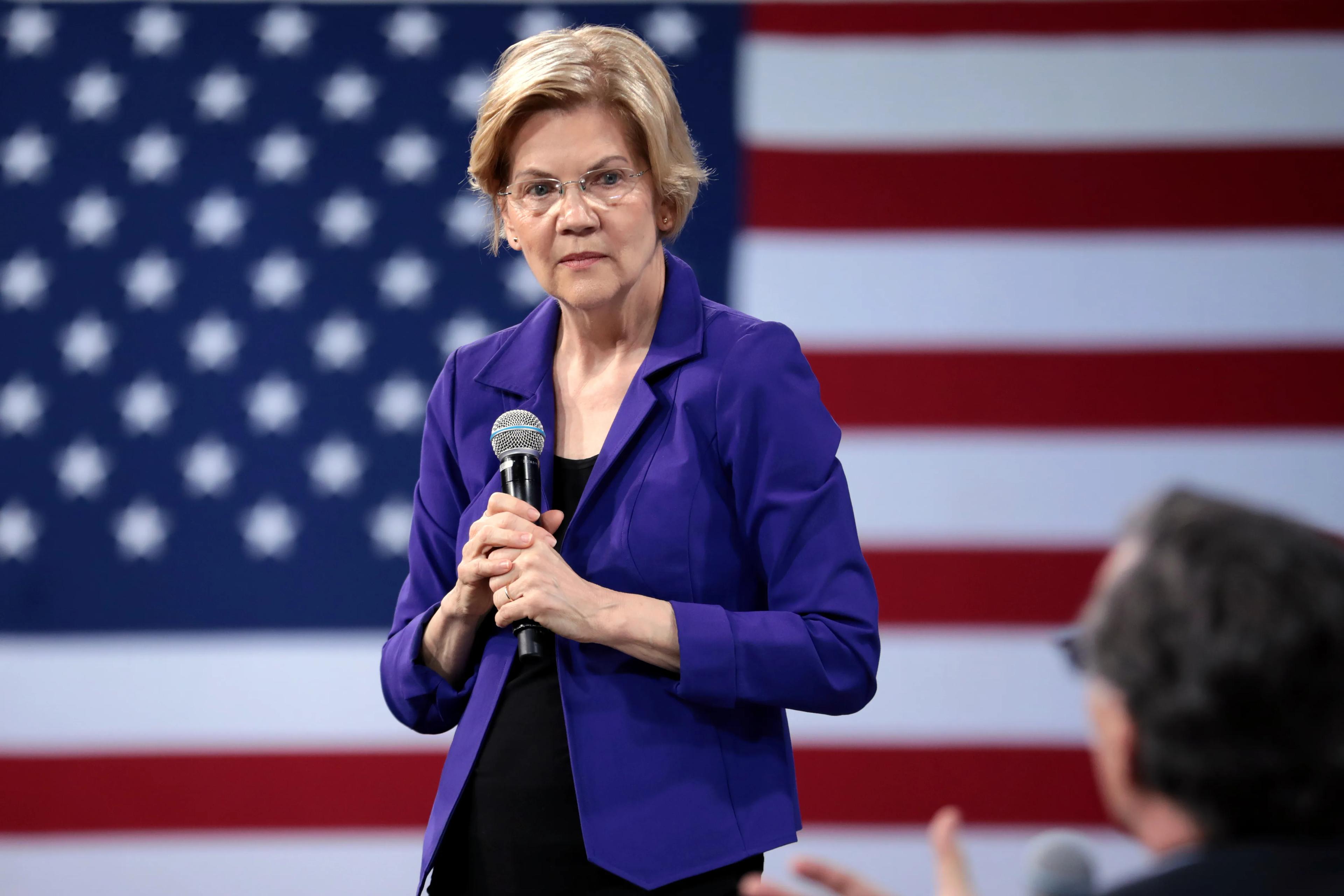Today in crypto: Trump stablecoin bill sparks backlash
Elizabeth Warren, a Democratic senator from Massachusetts, criticizes Trump's stablecoin bill as self-serving

Trump stablecoin bill slammed by Elizabeth Warren
U.S. Senator Elizabeth Warren has accused President Donald Trump of leveraging a stablecoin-focused bill to further his financial interests. The Democratic senator called out Trump’s DeFi project, World Liberty Financial, and its USD1 stablecoin, claiming the administration is pushing the legislation to make it easier for Trump and Elon Musk to take control of financial assets.
Warren specifically criticized the "Financial Innovation and Technology for the 21st Century Act" (FIT21), which aims to establish clearer digital asset regulations. She alleged that Trump’s administration is selectively boosting certain crypto assets for personal gain.
The Trump administration continues to push its vision of making the U.S. the “crypto capital of the world” with initiatives like the SEC Crypto Task Force and plans for a strategic Bitcoin reserve. Despite Warren’s criticisms, Trump’s crypto czar, David Sacks, maintains he sold all his crypto holdings before taking his government role.
Senate repeals DeFi tax rule
The Senate has voted to repeal a controversial IRS rule that would have required decentralized finance (DeFi) platforms to collect taxpayer information. The rule faced intense backlash for being “fundamentally unworkable” given DeFi’s automated nature.
President Trump is expected to sign the resolution into law, which will officially overturn the rule. The Senate vote follows a successful push in the House and marks a rare moment of bipartisan agreement in crypto regulation. Critics argued that the rule would drive innovation offshore and unfairly target automated trading systems.
California court dismisses lawsuit against Dfinity
A California federal judge has dismissed a class action lawsuit against Dfinity, the company behind the Internet Computer Protocol (ICP). The judge ruled that the claims were time-barred under the Securities Exchange Act’s three-year statute of repose.
Investors had alleged that Dfinity sold unregistered securities and manipulated the ICP token’s price following its debut. The judge also noted that the plaintiffs failed to demonstrate evidence of fraud or intentional wrongdoing by Dfinity’s founder. The dismissal is a relief for Dfinity, as the case had dragged on amid allegations of misconduct from both legal teams involved.
Wyoming pulls back on Bitcoin reserve plans
Wyoming Governor Mark Gordon has distanced himself from recent attempts by state legislators to establish a Bitcoin reserve, emphasizing a more cautious and practical approach to crypto adoption.
Speaking at the DC Blockchain Summit, Gordon acknowledged that political momentum has shifted favorably for crypto, but warned against making rash decisions. Instead, he highlighted Wyoming’s focus on developing a state-backed stablecoin called WYST, which is currently in testing.
The move comes as several Republican-controlled states recently shelved similar Bitcoin reserve proposals, fearing the financial risks of such large investments.
Trump’s SEC nominee vows to streamline crypto regulation
Paul Atkins, Trump’s nominee for SEC chair, pledged to make cryptocurrency regulation a top priority during his upcoming confirmation hearing. Atkins criticized existing policies as overly complicated and stifling to innovation.
His nomination marks a shift from the previous SEC leadership, which was known for aggressive enforcement actions against major crypto firms. Atkins promised a balanced, transparent approach that would support market growth without undermining investor protection.
Senator Elizabeth Warren has already voiced her opposition, questioning Atkins’ previous regulatory failures and potential conflicts of interest due to his financial ties to the crypto industry.
Today's crypto headlines highlight the ongoing tug-of-war between regulation and innovation. While Trump’s pro-crypto stance continues to spark debate, the repeal of the DeFi tax rule and Atkins’ nomination reflect a broader push for practical frameworks. Yet, controversies like Warren’s criticism of the stablecoin bill and Dfinity’s legal battles show how regulation and accountability remain contentious topics in the crypto space.
As the industry moves forward, the challenge will be balancing innovation with responsibility – and ensuring new policies don't inadvertently stifle progress. Stay tuned to see how these dynamics unfold and shape the future of digital assets.




